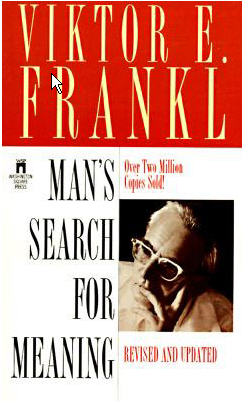Liz Barclay at Oakland University, is using the Myths of Innovation in a MBA course on creativity. I offer to teachers who use my books that if they send in a list of student questions, I’m happy to answer here. Here’s some Q&A with her class:
Kevin: A key component of innovation is failure, and it is the overcoming of repeated failures that often lead to breakthroughs. Today’s children are being taught at a young age that failure is a bad word and that participatory success is to be shared and valued by all. If you agree, will decades of this collectivist methodology lead to a technology and innovation gap in the US sometime in the future?
Human culture has good reasons for making failure a bad word. For (civilized) cultures to work, most people need to follow at least sone of the same rules, and that’s supported by instilling values for fitting in and doing the right things (as defined by everyone else). Even the most innovative culture in the universe some conformity is needed: stop signs, traffic lights driving on the same side of the road (not to mention speaking the same language). Institutions like schools, churches and armies will always emphasize rigidity and conformity in at least some ways.
But to your point, children need regular experience with subjects where there is no singular right answer: drawing, painting, writing, making music… these are all activities where creativity is almost unavoidable provided the assignments aren’t merely to copy what someone else is doing. English and history also have lots of room for creativity provided the teacher’s goal is to expose students to their own thoughts, rather than memorizing someone else’s. And regardless of what schools do, parents are free to emphasize creativity and free thinking in their children, if they choose.
I don’t think the U.S. is at particular risk here -we have far less institutional conformity than many other nations, and we also have far more dropouts :) Not that I’m advocating dropping out, but it is potentially a creative act that leads to many other creative acts.
Anna: I am curious whether Mr. Berkun is familiar with TRIZ (http://en.wikipedia.org/wiki/TRIZ), and if yes, what he thinks about it. Has he had any chance to apply TRIZ in his own practice? In a nutshell, from what I remember from my father’s lectures back in Russia, TRIZ was invented as a “scientific method to help an average person to make inventions”. TRIZ offers series of tools which could be applied to a “technical problem” to generate variety of solutions to “eliminate the contradiction” and therefore solve the problem by changing something about the “technical system”.
I’m familiar with TRIZ. It’s vaguely similar to other idea generation toolkits, like IDEO’s method cards. Both systems offer short bits of advice on different ways to think about a problem. This can of course be helpful, as framing a problem differently is often what leads to a step forward. But there’s nothing exceptional about any of these systems. They can help find different ideas, but for very difficult problems the likelihood of finding a working idea simply by using one of these systems is small.
But ideas are easy. Having the idea is very different from being wiling to spend 5 years or $50,000 refining it to the point that anyone will believe the idea works. TRIZ, nor any idea generation aid, can do that for you. TRIZ also emphasizes physical inventions, as in machinery and gadgets, rather than ideas for other things. You can play with one version of TRIZ here and you’ll quickly see some of its limitations. Try using it to invent a time machine, or a car that gets 500mpg – You’ll see how limited the help it offers can be.
Linda: Does he see any place in our traditional education system for a more accurate depiction of the work of inventors or the real story of historical people/ events or does he see this as something strictly for those who intend to be seen in their jobs as ‘innovators’? I’m wondering because I can see some useful learnings even for someone like me in a traditional field (Finance).
Formalized education tends to be dull and gravitates towards making everything seem predictable and obvious. If you have to build a system to teach courses again and again and again, it’s inevitable to tend towards an illusion of dull certainty: “This happened, which led to this, which led to what I am teaching you now, therefore it is all obvious and credible.” History, which is a huge part of every subject taught everywhere, is partially just a story we tell ourselves to make us feel good in the present. It steers clear of topics we are uncertain about, even though we know these subjects will be taught very differently 100 years from now, just as they were taught very differently 100 years ago.
The best recommendation I can give is to read a early history of whatever subject you care about. If you go back far enough you will always find a frontier where big bets and high drama took place to define the basic concepts we all take for granted now. Finance has a fascinating history of innovation. Who made the first bank? How did they convince anyone to let them hold their money? When did paper money start (and how did they convince anyone paper had value?) When you go back you will find many important ideas that modern experts do not know, or have misinterpreted, or take for granted. Innovation is everywhere – you just have to look a little deeper to find it. I hope my book helped you believe that’s true.
In all fields there are people who push at the boundaries and are asking big fundamental questions. Every field has its own encyclopedia of ignorance, you just might need to do some looking before you find professors and experts working to answer those big questions.
Have a question you’d like me to answer? Leave a comment.




 Three weeks ago I tore my Achilles tendon playing basketball. Just like a well worn rope that snaps from being pulled too hard one too many times, it tore completely during my regular basketball game at the gym.
Three weeks ago I tore my Achilles tendon playing basketball. Just like a well worn rope that snaps from being pulled too hard one too many times, it tore completely during my regular basketball game at the gym.